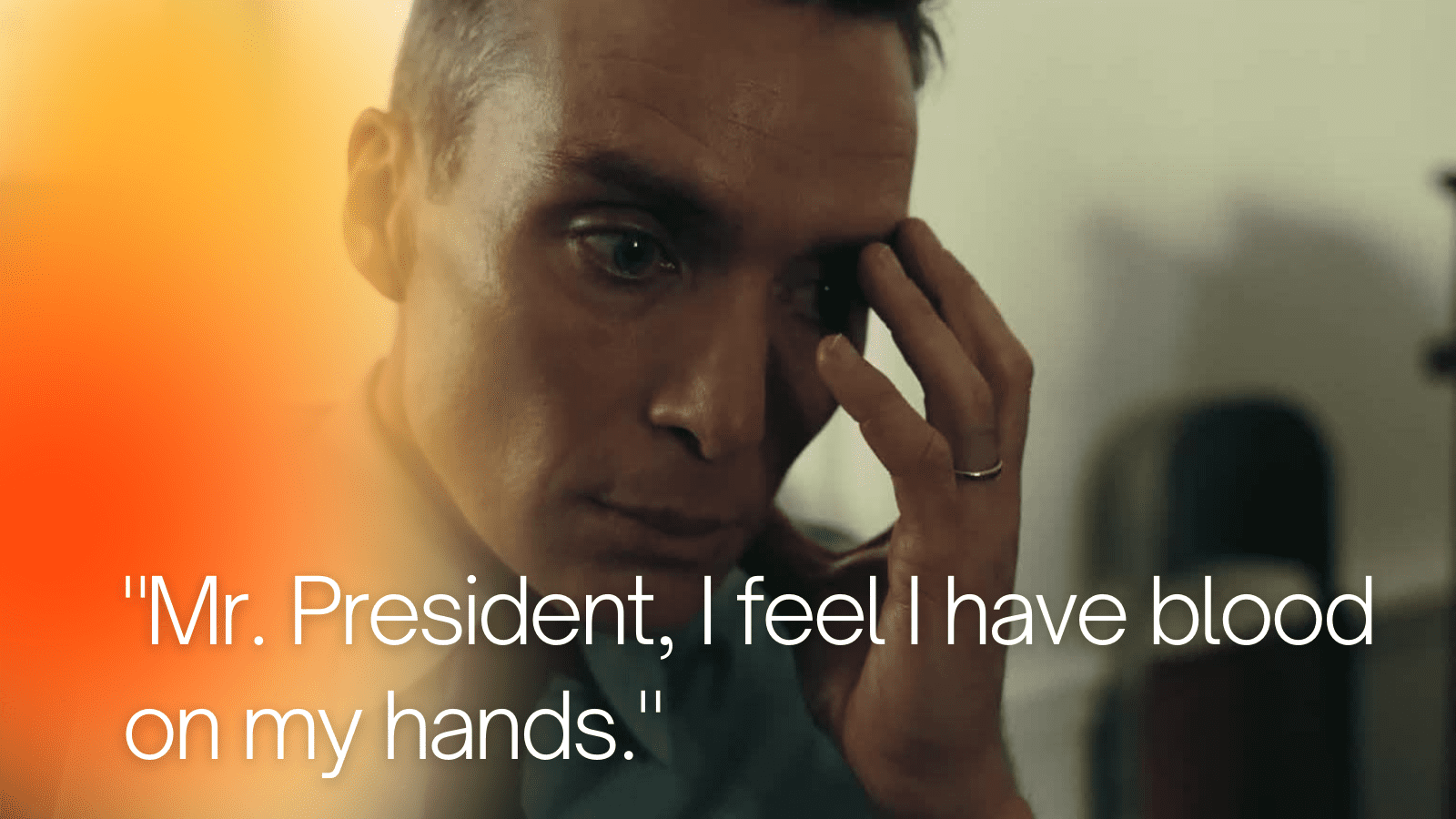Did Oppenheimer Regret It? A Tale of Triumph, Regret, and Seeking Redemption
After all the hype, are we aware of what went behind the mind of the “Father of the Atomic Bomb?” The world was forever altered by the massive atomic bomb that devastated Hiroshima, decimating life and signaling a crucial moment in history. In Los Alamos, New Mexico, J. Robert Oppenheimer basked in the glory of his ground-breaking invention, his hands clasped together like a champion. It was an electrifying moment, and in August 1945, he addressed the crowd with a sense of accomplishment and confessed that his only regret was not developing the bomb sooner to use against the Germans during World War II.

Behind The Conscience of the “Father of the Atomic Bomb”
This happiness, however, was short-lived as it was overshadowed by the evil that followed the detonation of a second atomic bomb on Nagasaki three days later. The scientist’s joy turned to agony and regret as he thought about the unnecessary and unjustified destruction it had caused. President Harry S. Truman could see Oppenheimer’s distress when the two men first met in October of that same year at the White House, and he genuinely wanted to know what was going on.
In an honest exchange with the president, it is believed that Oppenheimer said, “Mr. President, I feel I have blood on my hands.” His words reflected the turmoil he was experiencing on the inside as a result of seeing the massive destruction caused by the atomic bombs. In an effort to lighten Oppenheimer’s load, Truman offered his own viewpoint and claimed that it was he, not the scientist, who was responsible.
Oppenheimer realized the massive power of the bomb, which filled him with regret. In retelling the event when Vishnu revealed himself as “Death, the destroyer of worlds,” he quoted passages from the Bhagavad-Gita. This realization weighed heavily on him as he struggled with the weight of humanity’s recently discovered destructive capabilities.
Oppenheimer took over the Institute for Advanced Study at Princeton after leaving his post as director of Los Alamos as the war came to an end. He became a passionate supporter of peaceful nuclear energy control, rejecting the path of military dominance and advocating the creation of a separate government agency to manage the potent technology.
Oppenheimer became a target during the Red Scare due to his opposition and his affiliation with the American Communist Party. During the turbulent 1950s, he experienced hardship after having his security clearance revoked.
Oppenheimer’s moral compass, which was shaped by his varied upbringing and intellectual pursuits, remained complex throughout it all. He embraced various cultural and religious influences despite being raised in a secular home and having Jewish heritage. His love of literature, music, and non-Western philosophy demonstrated his desire to comprehend the intricacies of the world.
Oppenheimer sought atonement and significance for his work despite his internal moral conflict. He reflected on sacred writings like the Bible and the Bhagavad-Gita in an effort to find comfort and meaning. His profound legacy left us with a menacing quandary: would the atomic bomb be remembered as a symbol of destruction, a legacy of Oppenheimer, the tortured genius, or would it become a sign of life through sustainable nuclear energy?
The struggle of a brilliant mind torn between the joys of scientific achievement and the weight of conscience was ultimately embodied in Oppenheimer’s journey. He was devastated by the atomic bombings, but in his search for meaning and redemption, he propelled a generation to consider how the future of humanity will be affected by scientific advancement.
